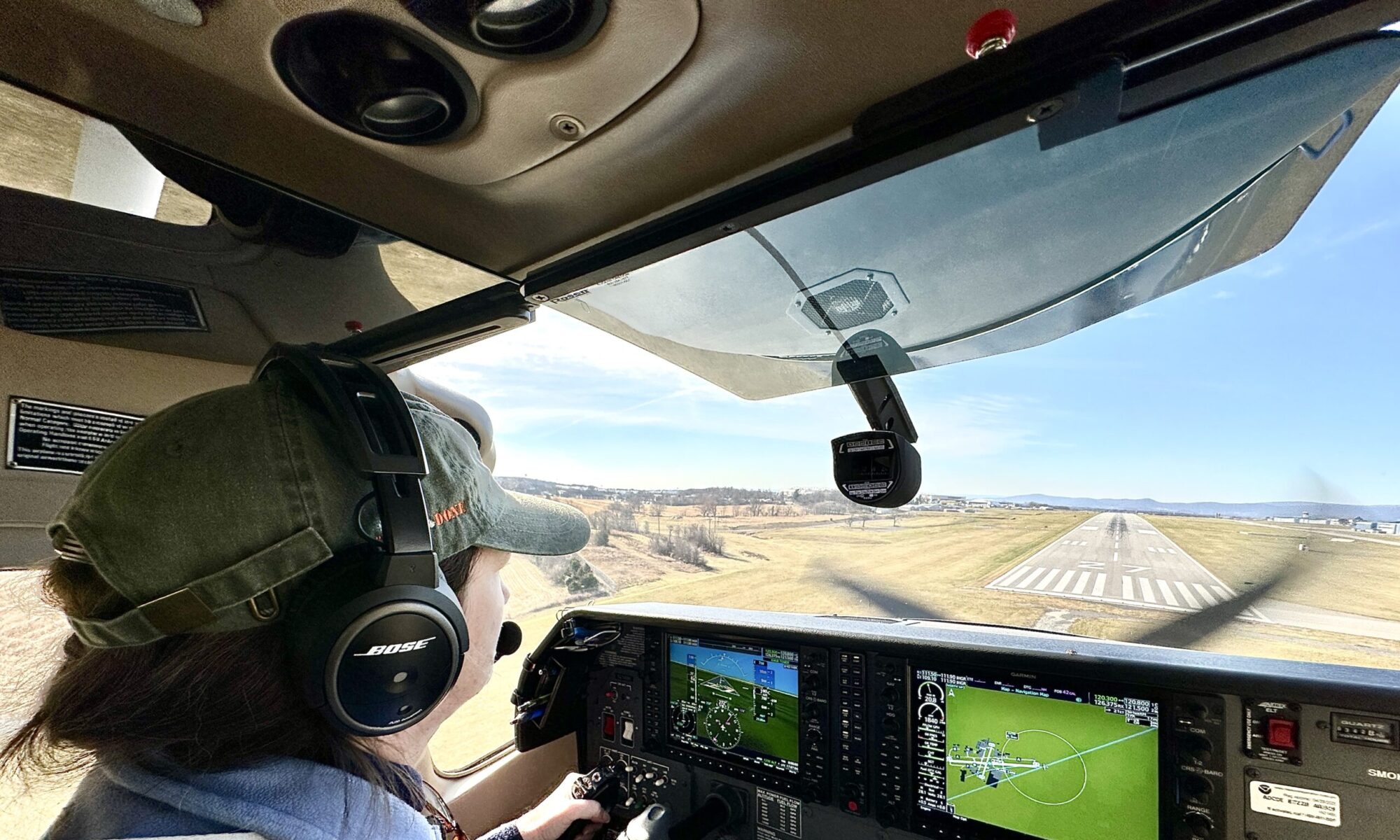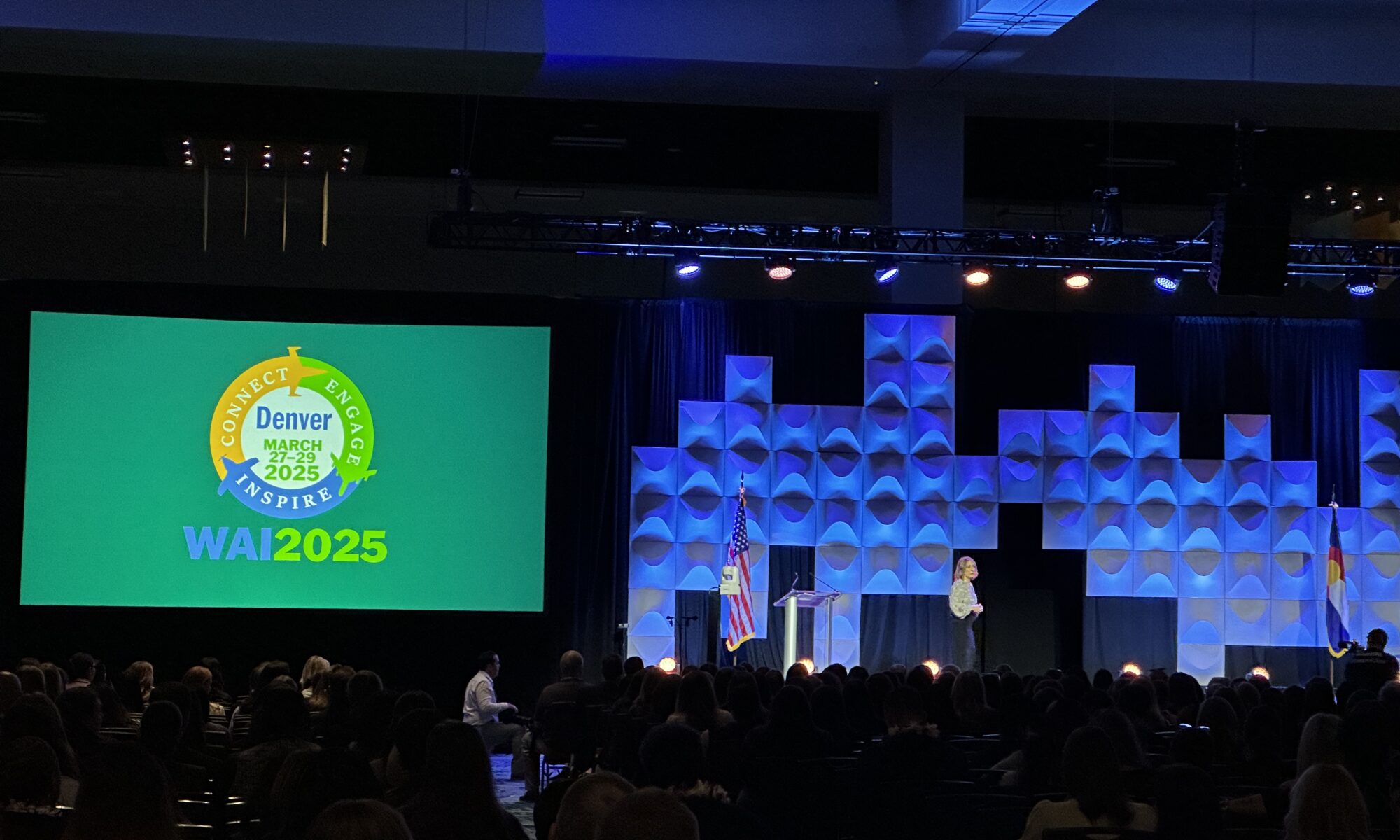“A world where the sky is open to all—where aviation and aerospace dreams are possible without barriers.”
Without barriers. If you had to encapsulate the mission of Women in Aviation International, that’s it. The fact we’re even *having* a conversation about the raising of those barriers in 2025 is unbelievable.
But here we are.
WAI25 Meets the Moment
Each time winter breaks through to the first signs of spring, I weigh our ever-expanding travel schedule to determine which aerospace events to attend against three factors:
- What I must attend
- What I want to attend
- What I can prioritize down in order to say yes to 1 & 2
The Women in Aviation International Conference—which I’ve made a part of my life since 1999—once more went from a “want” to a “must.”
Now, more than ever, this association’s critical mission meets the global moment as it faces a list of challenges, many coming from the U.S. government leadership, that would have been unimaginable a year ago.
Every day brings news of more “takedowns”: the violent scrubbing of resources and references supporting diversity, equity, and inclusion initiatives from websites to policy manuals, in the interest of tilting the playing field back to where it was in some vaguely unspecified time before we recognized the importance of representation across our workforce and communities.
WAI CEO Lynda Coffman pulled zero punches kicking off the conference on Thursday, March 27, at the Gaylord Rockies Resort & Convention Center in Denver at the opening general session.
“As we sit here now, our hard-earned achievements and accomplishments are being erased,” said Coffman. “The policies that are perpetuating barriers and negative stereotypes will only reduce the number of women who can or want to enter aviation.”
So why should we care? Coffman—speaking from experience given her previous role in senior leadership at United Airlines—drew a direct connection to the bottom line for the aerospace industry. “That will lead to smaller talent pipelines for the industry. And those smaller talent pipelines mean a smaller talent pool for the industry, which means thinner pickings for the most qualified people.” That’s not good for anyone—especially when we compare the industry’s “stellar” safety record under these broadening initiatives and their positive impact on the recruitment of the best people.
Tapping into the spirit of the room, which numbered several hundred young people interested and invested in aviation sitting next to seasoned aviation professionals, Coffman asked how many felt disoriented, abandoned, and, yes, angry, given the current state of affairs. Hands flew up. “Yes, you should be feeling angry, because the rhetoric that’s down there right now is a damn outrage.
“How dare anyone say we are less than, or less qualified because of our gender? It’s utter BS.”
Coffman urged those taking part in #WAI25 to move those feelings to collective action:
- Stand together and make their voices heard.
- Reach out to those women and allies feeling isolated, singled out, or anxious.
- Grow the community, with the stretch goal to lift membership in WAI to 25,000 by April 15.
“Let’s also make this a day,” said Coffman, “that we’ll send the message that we will stand together, we will not be undermined, we will not allow our talents and qualifications to be questioned, and we will not stand for our full contribution to history to be erased.”


Her powerful words told so well!